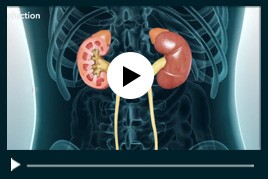Urinary Reflux (Vesicoureteral Reflux)
Urine is formed in the kidneys, flows down through thin tubes called ureters, and is temporarily stored in the bladder before being excreted to the outside. The valves in the ureters, muscles of the ureters and bladder, and the pressure created by urine in the bladder, ensure this unidirectional flow. Vesicoureteral reflux, a condition commonly diagnosed in infants and children, is characterized by the backward flow of urine i.e., from the bladder to the kidneys. Vesicoureteral reflux can be of two types:
- Primary vesicoureteral reflux: congenital condition caused due to developmental defects in the ureteral valves
- Secondary vesicoureteral reflux: obstruction in the ureters or bladder caused by surgery, injury or previous infection
Vesicoureteral reflux can lead to urinary tract infections and damage to the kidneys. Urinary tract infection is characterized by fever, pain and burning sensation during urination. Your child may also have a strong urge to urinate, passing small amounts of urine each time. When infection is suspected, your child’s doctor will review your child’s history, perform a thorough physical examination, and may order urine tests, ultrasound scan or cystourethrogram (X-ray imaging following the injection of dye into the bladder) to confirm vesicoureteral reflux.
Many children with primary vesicoureteral reflux do not need any treatment as the ureters grow and develop normally with age. In other cases, your child’s doctor may prescribe antibiotics to treat the infection. Surgery may be necessary to repair or create new valves in severe cases of vesicoureteral reflux.

 Menu
Menu




